There are some common health issues in cats; cat dry heaving is one of them that happens with pretty much every single cat. In most cases, it’s a minor cough or gag issue that occurs due to hairball.
From time to time, cats throw up hairballs, which is pretty normal. But, if your feline is refusing to eat, this is when it needs special attention. Usually, cats don’t eat when they feel sick. If your cat is dry heaving and it’s doing fine with food, you have no reason to worry.
When a cat dry heave more than once periodically, there can be some other issue; it can be gastroenteritis, nausea, or even liver disease.
If you searched for ‘my cat is dry heaving and not eating,’ then you are in the right place. This article will tell you why it happens in cats and how to treat the issue and prevent it from happening further.
What Is Dry Heaving in Cats?
The issue can be addressed as repeated retching. Apparently, it may seem like vomiting to you. However, the cat doesn’t vomit at all; it just feels like vomiting. The cat has to put more effort than what is takes for vomiting; thus, it’s more tiring and exhausting for cats.
What are the Symptoms of Dry Heaving?
During the retching, you will find the cat is spitting out the saliva as well as bile. This issue also occurs due to dry mouth and throat, stomach indigestion, etc.
The cat may also have acidic reflux, gagging, loss of appetite, lethargy, restlessness, rough breathing, etc. If a cat is going through dry heaving, these are the signs of illness in cats that you need to look for. Sick cats refuse to go out to play or even walk.
What Are the Reasons for Dry Heaving?
Dry heaving can happen to both adult cats and kittens. Although hairball is typically the reason why normal cats mostly suffer from this, there are some other reasons, as well. Here are common cat illnesses behind dry heaving –
Hairballs
For the most obvious reason, it comes at first. As cats are a well-groomed animal, they always keep themselves well-groomed throughout the day, it causes them to ingest lots of hair. If your furball has long hair, the risk of heaving is even more.
Typically, you will find your cat dry heaving a few times before it throws up a big hairball in every other day. It happened with my cat a lot. I couldn’t recognize that it’s a hairball, I thought my one just vomited. But later, when I learned more about dry heaving, it became clear to me.
If your cat is continuously coughing up hairballs, and there is nothing wrong with its eating habit, you have no reason to worry. The feline will be fine within a day or two.
However, if the cat struggles too much to cough up hairballs and unable to do so, consider taking him to your vet to examine the issue further.
Nausea
Cats are the most nauseous type of animal I have ever known of, and I’m pretty sure you feel the same. Like us, they feel kind of nauseous for no reason once in a while. It can be because of their frequent eating habits.
If your feline has acid in its stomach, dry heaving can happen, as well. Feeding the cat spoiled food also causes the issue.
You might notice its refusal of eating, loss of appetite, lethargy, and vomiting. The good thing is, nausea doesn’t stay for a long time; it will go away eventually within a day or two.
Gastroenteritis
Due to infections such as viruses, parasites, bacteria, or reaction to certain foods, cats develop gastroenteritis complications. It refers to the inflammation of the intestines and stomach.
Sick kitten, as well as adult cats, suffer from diarrhea, abdominal pain, and vomiting, followed by dry heaving.
When it tries to vomit with an empty stomach, there will be yellowish or white foamy vomit. Cats with gastroenteritis issues can go through dry heaving and gagging after eating or drinking something.
Lethargy, loss of appetite, a low fever are the symptoms of gastroenteritis. Due to vomiting and diarrhea, the cats go through severe dehydration that lasts for more than a day.
The gastroenteritis problem requires medical attention asap. Your veterinarian will recommend CBC, fecal test, urinalysis, serum chemistries and electrolytes, abdominal ultrasound, and abdominal x-ray. Depending on the severity of the symptoms, the vet will determine which test the feline needs to go through.
Foreign Body in Throat or Stomach
If you have a toddler in the house, you will understand the fact better. Cats and toddlers are the same when it comes to trying to eat every single thing they get to contact with. Your cat will always eat things that it shouldn’t eat. It can be foam, plastic, bugs, string, bags, and whatnot.
Cats put pretty much everything in the mouth to see what the thing actually is. Due to this, the intestinal tract, throat, and esophagus get blocked, which makes cats vomit and dry heave, followed by abdominal swelling and pain. If it happens, your cat will not eat or drink for a day or two.
You need to take the cat to your vet as soon as possible in this case. It must be checked to prevent complete blockage and dehydration.
Kidney Disease
Kidney disease is common in older cats, and it brings dry heaving issues, as well. The condition increases urination and thirst, pale gums, lethargy, weakness, depression, and itchiness.
There are several reasons for cats to have kidney issues, such as –
- Obesity
- Dental illness
- Repeated kidney infections
- Kidney injury
- Urinary tract infection
- Congenital disabilities
Some breeds such as Persians, Himalayans, and British Shorthairs have a high chance of developing fatal kidney problems.
Heart Disease
Cats also dry heave when they have heart disease. This disease is common in cats. One in every ten cats has some sort of heart issue. Some of the heart diseases in cats are congenital, and incidents or other health problems.
Complications such as blood vessel disease, heartworm infection, myocardial, and arrhythmia are the most common type of feline heart disease.
Affected cats go through breath difficulty, dry heaving, irregular heart rate, growth failure, chronic coughing, and a swollen abdomen.
Liver Disease
The liver is an organ that is associated with various internal functions such as storing vitamins, filtering toxins, digesting nutrients, and more. Due to its multi-functionality, the liver is prone to damage and various diseases.
Cats with liver disease show symptoms such as dry heaving, jaundice, pale gums, loss of appetite, weight loss, head pressing, increased thirst, circling, and distended abdomen.
How to Treat Dry Heaving?
The treatment measures for dry heaving are described below –
For Hairball
If your cat dry heaves due to hairball issue, you need to take care of its hair grooming. Make sure your furball is always well-groomed and cleaned. It will cause the cat to lick its hair far less than before. Also, you can use some hairball medications and apply them in your feline’s paws.
Using petroleum jelly also helps to get the cat rid of excess hairballs. You can also try using mineral oil and butter to deal with the problem. Try these solutions to get rid of dry heaving if your cat still doesn’t eat and drink properly.
However, if the problem persists or your cat isn’t taking any food, consult with your vet soon.
There are some other issues that are mistakenly associated with hairball –
Asthma
Some cats seem like they have an issue with hairballs. But in reality, it can be a respiratory disease. If your cat is frequently coughing, and it’s getting worse, asthma is most likely the issue here.
When the cat breathes, listen closely; you might notice wheezing sound when it exhales.
To treat the issue, your cat requires an inhalant medication prescribed by a vet.
Chemical Irritants
If your feline has to go through any spraying and propellant treatment, it will cause coughing for a certain period. You might think it’s related to hairball, but it isn’t. When cats inhale such things, it causes them sudden coughing.
To prevent the issue, be sure to cover the face of your cat.
For Nausea
It’s less likely that you need to take any steps to get rid of nausea in your cat. It will go away within a few hours or a day. However, if the issue is still there, which is very rare, you need to visit the vet.
For Gastroenteritis
If the issue is associated with the cat’s digestive system, you need to ensure the cat is getting a healthy diet, which is easy to digest. Give your cat liquid items such as soups made of chicken and rice broth. The broth is nutritious and easy to digest, as well.
A healthy diet helps the stomach to regain the lost strength and normalize the digestion level.
However, it’s also recommended to check out by a vet, who will perform diagnostic tests to figure out the actual problem.
After determining what is causing the issue, the vet will prescribe antibiotics, anti-vomiting, and gastrointestinal protectants medications to restore the digestive capacity.
Don’t allow the cat to roam outside the house alone. When you are taking the cat out for a walk, don’t let it consume any potentially poisonous and unhealthy item.
For Foreign Body in Stomach
As far as the case is concerned, all you can do is to take the cat to the nearby veterinarian to examine its stomach and throat through an endoscope. The vet will take care of removing that obstruction.
Others
If your cat shows any sign of kidney, heart, and liver disease, take it to the vet to get the right treatment before it’s too late.
How to Prevent Dry Heaving in the First Place
- Consider grooming your cat’s hair regularly. Also, feed the feline good quality nutritious diet that has mostly liquid and fiber.
- Keep the cat’s food clean and serve in a clean bowl. Make sure its living area is also cleaned. Don’t give your cat too much food, which will end up as leftovers.
- Regularly give vaccines to prevent gastroenteritis diseases. Also, keep your pet separate from other sick animals.
- When taking the cat for walking outside the house or in a park, make sure you keep your eyes on it. As soon as it approaches some dangerous items, move to somewhere else. Similarly, keep such things away when the cat is inside the house.
- Treat worm issues in your cat in order to prevent heart disease.
- There is nothing to do for preventing kidney issues. Go to the vet if you see any symptoms of the disease.
- When your cat sheds some of its hair, clean them right away so that it cannot consume those accidentally.
Dry Heaving in Kittens
A number of cat owners can relate to this issue. Dry heaving is one of the common kitten illnesses. Sick kitten gets very weak as the immune system stays weak during this stage.
If your kitten isn’t eating and drinking like it usually would, and it has a fever, you need to consult with a vet asap. Kittens under three months are very sensitive, and the death rate is very high within 3 to 5 months.
However, if your kitten doesn’t have any fever, it’s most likely the hairball issue, which will resolve on its own within a few weeks, even a few days. When the little furball shows other symptoms of sickness, go to a vet for further diagnosis and treatment.
Cat Dry Heaving Diet
Changing your cat’s regular diet can help to recover from the condition soon. If cat dry heaving has anything to do with ingestion problem or hairball, the vet will recommend putting the feline on a dry heaves diet.
The rule of thumb of this diet is to feed things that are easy to digest and don’t put much pressure on its tiny ingestion mechanism. Your cat should be able to swallow the food.
As far as foods are concerned, you can feed the cat chicken broth soup and rice broth; these two items are nutritious, and easy to swallow, and don’t require much effort for ingestion to digest. Giving such type of liquid food will allow the stomach to return to its normal state.
During the illness, getting a sick cat to eat can be very tiring and tough. You can use a dropper to feed liquids, including soups and water. As soon as your furball feels fine, it will start eating on its own.
Final Words
Cat dry heaving mostly occurs due to hairball. If this is the case, your cat should recover without any help within a day or two. And if you find sick cat behavior, go to a vet to start treating before it gets worst.
Common cat illnesses go off within a few days unless it’s a severe issue. This is when you need to consider cat illnesses and symptoms seriously.

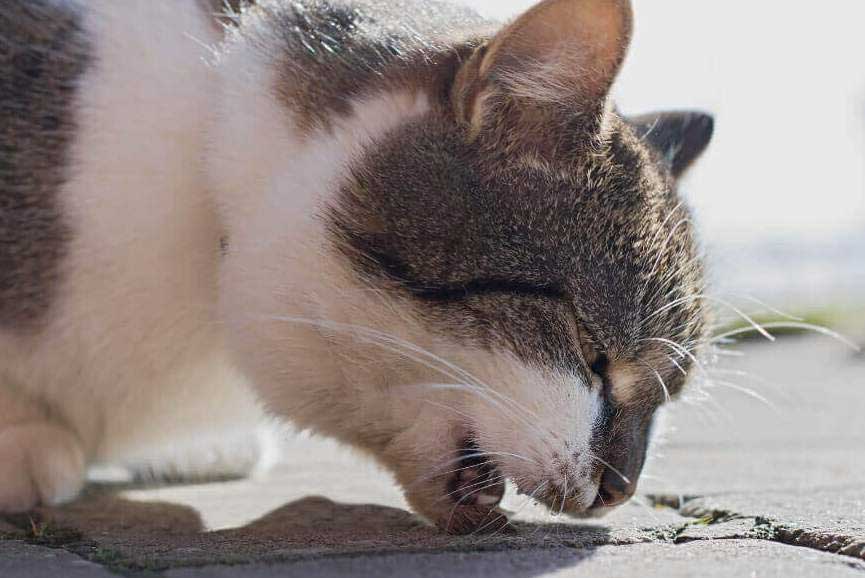
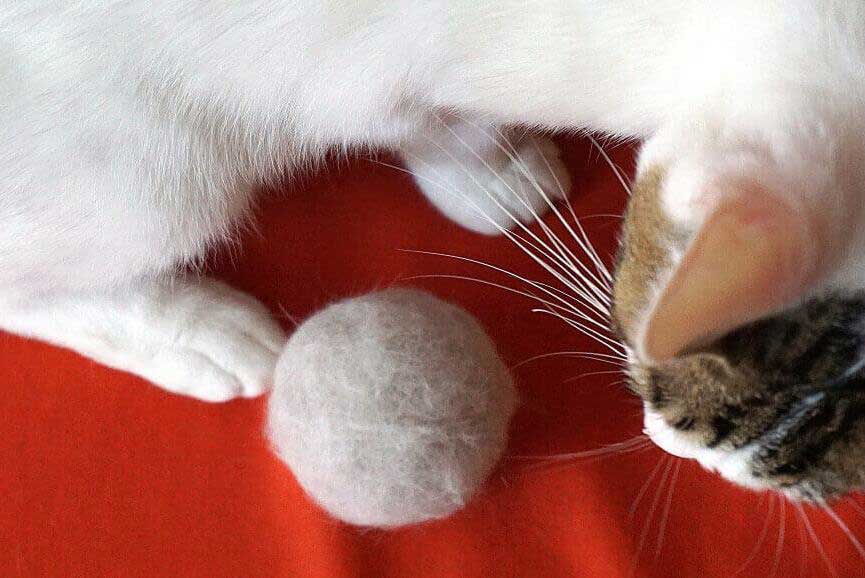
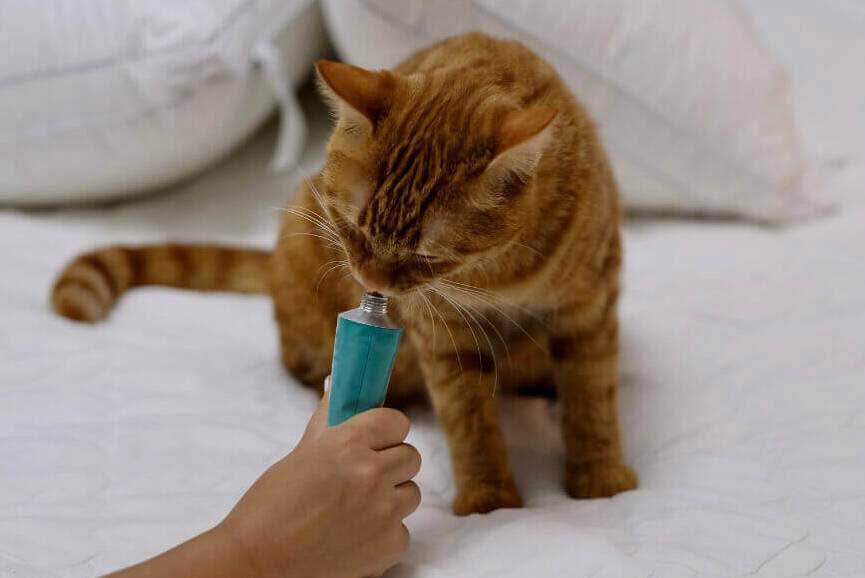
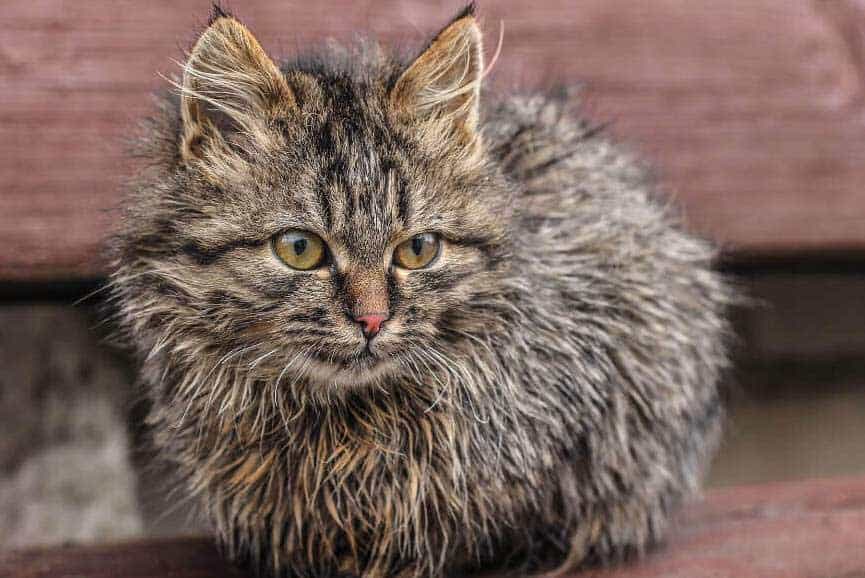
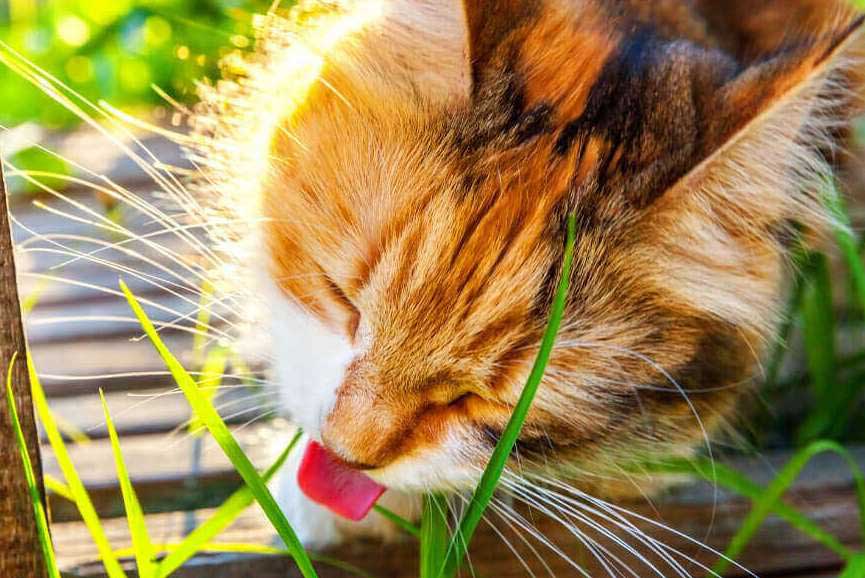
my cat dry heavys several times a day but swallows back what its dry heaving on. it’s been going on for months and really never coughs up a hair ball
Oh my goodness. Mine too… I need answers, I’m so worried.
Hi Alex, My baby(13 yrs old) and for the past month my baby has been doing the exact same thing. I of course took him to the vet, he was given METOCLOPRAMIDE, CISAPRIDE, METRONIDAZOLE(the rest was a small amount due to him staying in the hospital 2 days and they had been giving him antibiotics). Now he’s been home 2wks and after spending $728.00 ; He’s still doing that. The only improvement is that his stool seems normal and thank God he has an appetite . We both need help???!!!
My 12 year old cat is having this issue also. Her appetite is good.
My cat was dry heaving for two weeks. He was eating less but drinking a lot, they took an exhaust and it showed Cancer in both lungs.an awful diagnosis.